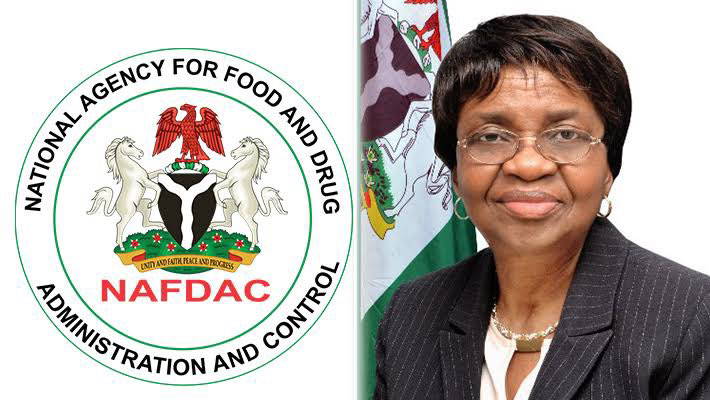The National Agency for Food and Drug Administration and Control (NAFDAC) has warned Nigerians about a falsified version of Gold Vision Oxytocin injection 10IU currently circulating in the market. The agency said the product carries a fake registration number and poses serious health risks to mothers and newborns.
In an alert numbered 028/2025 and published on its official website, NAFDAC explained that the falsified injection falsely claimed to have been manufactured by Anhui Hongye Pharmaceutical Co., Ltd., based in Bengbu, Anhui Province, China. The product was reportedly marketed by Gold Vision Medicals, located at No. 4 Range Avenue, Independence Layout, Enugu.
The falsified drug was discovered during a risk-based sampling survey carried out by officers of NAFDAC’s Post-Marketing Surveillance (PMS) directorate. Further investigations revealed that three other falsified products—A-tocin injection, Extocin injection, and Claxitodin injection—were also identified during a 2023 PMS sampling exercise. All four products bore the same forged NAFDAC registration number, A4-9566, despite not being listed in the agency’s official database of registered medicines.
NAFDAC stressed that the confirmation of these products as falsified makes their use extremely dangerous. Oxytocin, which is available as a pharmaceutical drug, plays a critical role in maternal healthcare. It is commonly used to induce or strengthen labour, manage postpartum bleeding, and support lactation. By binding to oxytocin receptors in the uterine muscle, it triggers contractions through a biochemical process involving calcium regulation.
The agency warned that the use of falsified or unregistered oxytocin injections could lead to severe consequences. Such products may contain no active ingredient, incorrect dosages, or harmful contaminants. This could result in weak contractions, uncontrolled postpartum bleeding, or even maternal death. Inadequate or poor-quality oxytocin may also fail to prevent excessive blood loss after childbirth, often forcing emergency interventions such as surgery or blood transfusions.
To prevent further circulation, NAFDAC has directed all its zonal directors and state coordinators to intensify surveillance, identify falsified products, and withdraw them from the market nationwide. The agency also appealed to importers, distributors, retailers, and healthcare professionals to remain vigilant and ensure that medicines and medical devices are obtained only from licensed suppliers. Consumers were advised to verify the authenticity and physical condition of all medical products before use.
Healthcare professionals and members of the public were encouraged to report any suspicion of falsified or substandard medicines to NAFDAC. Reports can be made through the nearest agency office, by calling the toll-free number 0800-162-3322, or by emailing sf.alert@nafdac.gov.ng. The agency further advised that reports of adverse reactions or side effects linked to medicines should also be submitted through these channels.
NAFDAC noted that the public can also report cases via its e-reporting platforms on www.nafdac.gov.ng or by using the Med-safety app, available for download on both Android and iOS stores. Alternatively, reports may be sent by email to pharmacovigilance@nafdac.gov.ng.
The agency reiterated its commitment to protecting the health of Nigerians and ensuring that only safe, effective, and quality medical products are available in the country. It emphasized that community vigilance and cooperation within the pharmaceutical supply chain remain crucial to stopping the spread of falsified and dangerous medicines.





